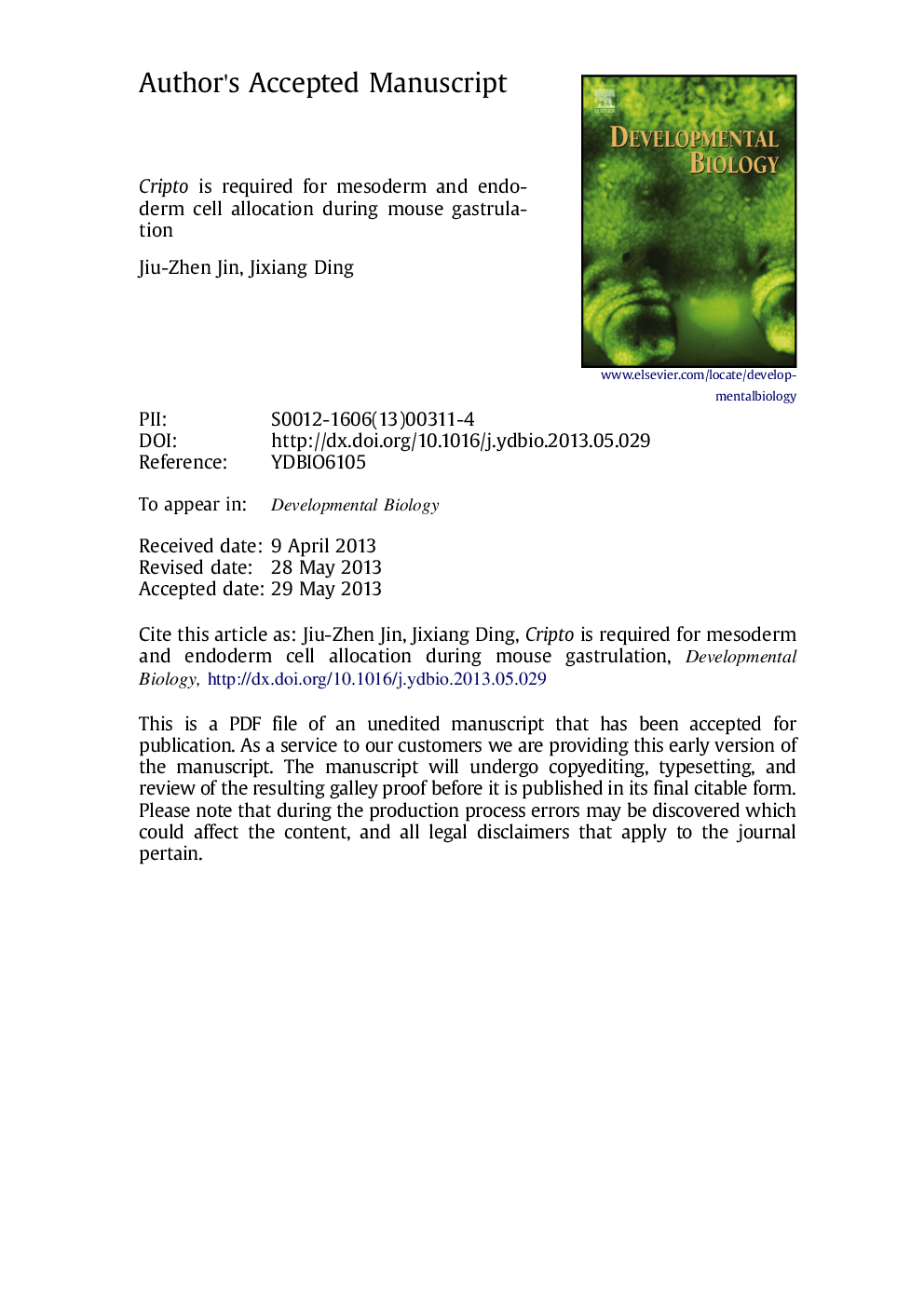| Article ID | Journal | Published Year | Pages | File Type |
|---|---|---|---|---|
| 10932104 | Developmental Biology | 2013 | 35 Pages |
Abstract
During mouse gastrulation, cells in the primitive streak undergo epithelial-mesenchymal transformation and the resulting mesenchymal cells migrate out laterally to form mesoderm and definitive endoderm across the entire embryonic cylinder. The mechanisms underlying mesoderm and endoderm specification, migration, and allocation are poorly understood. In this study, we focused on the function of mouse Cripto, a member of the EGF-CFC gene family that is highly expressed in the primitive streak and migrating mesoderm cells on embryonic day 6.5. Conditional inactivation of Cripto during gastrulation leads to varied defects in mesoderm and endoderm development. Mutant embryos display accumulation of mesenchymal cells around the shortened primitive streak indicating a functional requirement of Cripto during the formation of mesoderm layer in gastrulation. In addition, some mutant embryos showed poor formation and abnormal allocation of definitive endoderm cells on embryonic day 7.5. Consistently, many mutant embryos that survived to embryonic day 8.5 displayed defects in ventral closure of the gut endoderm causing cardia bifida. Detailed analyses revealed that both the Fgf8-Fgfr1 pathway and p38 MAP kinase activation are partially affected by the loss of Cripto function. These results demonstrate a critical role for Cripto during mouse gastrulation, especially in mesoderm and endoderm formation and allocation.
Related Topics
Life Sciences
Biochemistry, Genetics and Molecular Biology
Cell Biology
Authors
Jiu-Zhen Jin, Jixiang Ding,
